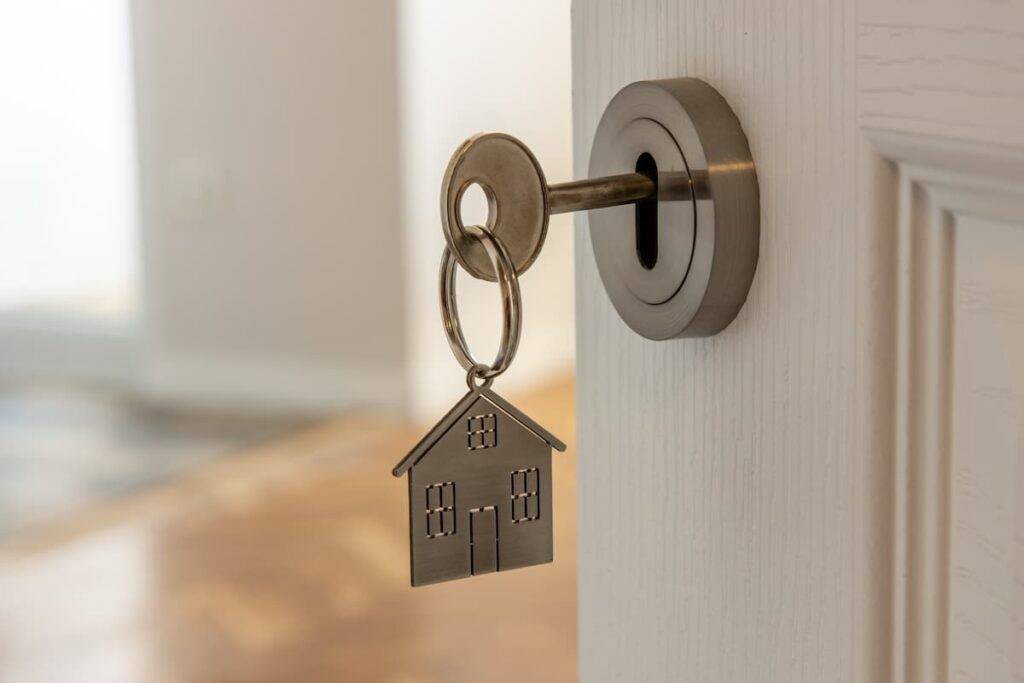
For generations, Americans have thought of homeownership as a major life goal worth striving for, but that perspective is now shifting and many have come to believe that renting is better than buying a home.
A growing number of people are realizing that the advantages of renting a home far outweigh any potential benefits of homeownership, particularly when it comes to their specific goals, lifestyles, and preferences. Buying a home is no longer a one-size-fits-all milestone, and more and more people are pursuing a path better suited to the futures they envision for themselves and their families.
When it comes to the question of why rent and not buy, the answers are just as unique as the individuals making the decision. However, there are a handful of reasons why renting is better than buying – and these are perks that just about anybody would appreciate.
We’ve rounded up the top ten reasons why people rent instead of buy homes, with the majority translating into actual dollars and cents saved. If you’re weighing your options between renting vs. buying a home, this list of benefits might just make your choice easier than ever before.
1. No Maintenance Costs or Repair Bills
There’s no question that one of the biggest renting benefits is not having to worry about maintenance and repairs. Generally, landlords assume all of the responsibilities associated with the upkeep of a home, ranging from basic maintenance to major repairs.
Keep in mind that some landlords shift the burden (and cost) to their tenants, so it’s vital that you read your contract carefully. In many cases, it’s ideal to choose a rental home that’s professionally managed by a property management team (like all of the homes in Wan Bridge rental communities in Texas). That way, you aren’t relying on just one person to tackle all of the necessary tasks – you have a professional firm that will handle it all.
2. Access to Amenities
When you buy a home, amenities like a pool or private gym would be an extremely expensive undertaking. Not only would you have to pay to construct and set up those types of amenities, but you would also have to deal with any ongoing costs.
But as a renter, you often have access to luxury amenities that significantly improve your overall quality of life. For example, many of our communities feature resident amenities such as swimming pools, parks, community centers, and more.
3. No Real Estate Taxes
Property taxes are one of the unexpected costs of homeownership and can easily be a hefty financial burden. Depending on where you live, property taxes can quickly add up to thousands of dollars each year.
One of the trickiest parts of property tax is that the amount you owe will always be changing. As the estimated value of your home increases, so will your taxes.
4. No Down Payment
Typically, purchasing a home means coming up with a down payment that equates to 20% of the purchase price. So, a home valued at $200,000 would have a down payment of $40,000 – not many people have that large of a sum sitting in their savings account. If you can’t come up with the down payment, you may still be able to secure the mortgage loan. However, you’ll be expected to pay a monthly fee for mortgage insurance, which is to protect the loan provider until you’ve established equity.
Many Renting is better than buying Renting a home doesn’t involve a down payment and generally requires far less upfront investment in general. This reality lends a heavy hand to the pers
5. More Flexibility as to Where to Live
When you’re looking to buy a home, you’re limited by your budget. Even if you have a favorite neighborhood or part of town, you’ll have to look elsewhere if you can’t afford the home prices. But for renters of built to rent homes, there is far more flexibility. Options for renters could make it possible to find a home in their dream location, which would be out of reach if they were buying a property.
6. Few Concerns About Decreasing Property Value
Property values can go up and down and are often subject to local, state, and national economic shifts. This can dramatically affect homeowners and even lead to them being “upside down” in a home that’s worth less than the amount they currently own on their loan.
But even in the rockiest of housing markets, renters won’t face the same risks and obstacles that homeowners do.
7. Flexibility to Downsize
When your lease comes to an end, you can easily transition to a living space that’s better suited to your needs, budget, or lifestyle. This is a major plus for retirees who want to downsize or even families with adult children moving off to college.
But for homeowners, it’s far more complicated to make that change. Not only will they need to successfully sell their home, but they’ll also need to be able to recoup the costs so that they can afford to move.
8. Fixed Rent Amount
Each month, a tenant knows exactly how much they will be paying in rent. When you sign your lease, it outlines the rent amount that will be fixed for the entire agreement span. Even though a landlord may raise the rent at the end of the lease, you will still have the ability to budget effectively.
If you buy a home with a fixed-rate mortgage, you’ll also generally know your monthly expenses. However, many homeowners have adjustable-rate mortgages (ARMs). The monthly payments on these mortgages can fluctuate because the interest charges are subject to change.
9. Lower Insurance Costs
As a homeowner, you’ll need to have a homeowner’s insurance policy. Expect to pay upwards of $1,200+ each year for homeowner’s insurance, an amount that can increase depending on a multitude of factors. For renters, the equivalent of this is renter’s insurance – but it is a fraction of the cost. A renter’s insurance policy can average about $150-200 per year.
10. Lower Utility Costs
It makes sense that the utilities for a compact apartment will be less than those for a large, single-family home. But what about renters that prefer a single-family home – can they also save on utilities?
When you choose the right developer, the answer is yes. For example, Wan Bridge constructs homes that are specifically designed to serve the unique needs of tenants. This means that, rather than building properties that will have mass appeal, our floor plans and structures focus on what a potential tenant will need. So, we can incorporate smarter design touches and efficiencies that can end up benefiting tenants in many ways – including potentially-reduced costs due to increased energy efficiency and other perks.
Find Single-Family Home Rentals by Wan Bridge
Renting doesn’t have to mean settling for a too-smart apartment or a home that’s just “good enough.” In fact, there’s no reason you can’t enjoy all the luxuries of a beautifully-built, thoughtfully-designed home in a master-planned community while still reaping the benefits of renting.
Wan Bridge is a one-of-a-kind developer that creates build to rent communities specifically for tenants, building single-family homes for rent in Texas’s most desirable locations. We’re changing the way the rental market works, giving tenants a solution that truly checks all the boxes: community amenities, spacious properties, gorgeous homes, and freedom from chores like maintenance, landscaping, and more. In our build-to-rent communities, you can have the best of both worlds: the flexibility of renting and the comforts of a luxury home.
Still, wondering why rent instead of buying a house? We would love to show you why our communities are setting a new standard for the rental experience – and why our tenants are among the happiest in Texas. Learn more about Wan Bridge communities, including ones that are coming soon, when you contact us today!
Image Source: Michael Dechev / Shutterstock






